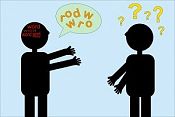Assessing Cognition In Aphasia And Other Language Impairment #e30
Presenter: Jacqueline J. Hinckley, PhD, CCC-SLP, BC-NCD
Learn parameters that should be considered for assessing cognitive abilities in individuals with aphasia.
– P.E., prior course participant
Read more comments about this course!
Clinicians have often struggled with appropriate ways to assess cognitive abilities like attention, memory, and executive function in the face of frank language impairment like aphasia. This course addresses four critical questions about assessing cognitive abilities in aphasia:
- Can we appropriately assess cognition in aphasia? The important parameters that we should consider are identified with specific clinical examples.
- Why should we assess cognition in aphasia? The latest scientific evidence showing that cognitive abilities may affect death rate and long-term health, medication self-management, and fall risk are discussed in terms of treating patients with aphasia.
- When should we assess cognition in aphasia? Recommendations for best practice from clinical practice guidelines are summarized for best care.
- How should we assess cognition in aphasia? Three specific assessment tools that are appropriate for use with individuals with aphasia are described.
Course is offered for 0.2 ASHA CEUs – 2 Contact Hours.
Course Overview – Run Time: 2:04:03
- Can we assess cognition in aphasia?
- Why should we assess cognition in aphasia?
- When should we assess cognition in aphasia?
- How should we assess cognition in aphasia?
– M.H., prior course participant
Read more comments about this course!
The content of this online CE course does not focus exclusively on any specific proprietary product or service. Presenter financial and non-financial disclosures may be found in the Presenter & Disclosures area.
Video PowerPoint presentation with author narration & downloadable handout. Stop and re-start the course at any point. Learners retain access to course content after completion for ongoing reference and review.
Reviews
"Beneficial review of how cognitive function impacts patients ability to utilize strategies." J.E. (Mar. 2025)
"Discussion on the specific tests used to assess cognition for PWA was beneficial. I liked that the course was broken into segments." A.B. (Feb. 2025)
"It was helpful to discuss what to consider in cognitive assessment of aphasia. Informative, accessible information." S.G. (Feb. 2025)
"The variation of assessment tools dependent on the severity level of aphasia was beneficial to discuss. Easy to listen to." J.S. (Feb. 2025)
"The application of strategies to assess cognition without need for verbal communication was helpful." E.D. (Feb. 2025)
"Assessment tools for cognitive deficits were helpful. I liked the clarity of the handouts." K.W. (Dec. 2024)
"The diagnostic tools provided were helpful." S.P. (Dec. 2024)
"The entire presentation was beneficial! The presenter is highly organized with clear, relevant examples of case history and implementing learned knowledge from the course. An important topic that is easily overlooked. I would strongly recommend that newer clinicians in inpatient settings understand the relationship of aphasia to cognition and how it may impact clinician decision-making for treatment plans of care and discharge recommendations. Excellent course!" L.T. (Nov. 2024)
"Learning what tests to use to assess cognition in residents with aphasia and why this should be done. This is an area I always struggle with and want to advocate for, especially when PWA have documented SLUMS or MOCA scores in their H & P with no note related to the aphasia. I liked how suggestions were made on what we could do if we don't have access to the assessments." K.K. (Nov. 2024)
"Beneficial topics were executive function abilities in strategy usage, assessment tools, informal vs formal observations, and patients that are often missed." R.A. (Sep. 2024)
"The need to assess cognition with aphasia was beneficial. I liked the ease of information provided." R.K. (Sep. 2024)
"Specific tests to use to assess cognition with someone who also has aphasia. The organization of the four parts was great." A.B. (Sep. 2024)
"This course offers very useful information which is important for optimum treatment planning and measurement of progress and is valuable information for all speech/language therapists who work with pt's with Aphasia and/or other neuro disorders." B.L. (Sep. 2024)
"I enjoyed learning about the assessments and screens that I can use in the home health setting. I liked breaking down the various tests and which sections to use for global aphasia." H.K. (Aug. 2024)
"Overview of cognitive tests was helpful. I liked the level of this course - appropriately challenging." S.L. (Aug. 2024)
"Provided cognitive assessments you can use with individuals with aphasia." M.H. (Jul. 2024)
"Talking about the assessments was helpful, and I liked that I could do the course anytime I wanted." C.S. (May. 2024)
"It was helpful to discuss when to start cognitive assessment for the patients. I enjoyed the scientific content with excellent examples." H.S. (May. 2024)
"Assessment discussion was beneficial. I liked the ease of use of the course." R.H. (May. 2024)
"The test review and case examples were helpful. I enjoyed the clear communication of the instructor." H.J. (Apr. 2024)
"Testing materials suggested for assessing cognition in the language-impaired patient population was beneficial. I liked the presentation and thorough slides." S.M. (Mar. 2024)
"Discussing treatment was helpful." R.J. (Mar. 2024)
"It was beneficial to discuss data on individuals missed with informal assessments; and comparisons of the CLQT, SCCAN and the GANBA. I liked the ease of accessibility." C.M. (Feb. 2024)
"The use of formal assessments to look at cognition in aphasics was helpful. Easy to follow course, and I liked the handouts." A.L. (Feb. 2024)
"It was beneficial to discuss the importance of cognitive asst and formal asst tools. I liked all the information on studies related to practical clinical practice." Z.R. (Jan. 2024)
"Defining cognition separate from language and vice versa was beneficial. I liked the visual diagrams." M.P. (Jan. 2024)
"Discussing the importance of assessment selection was helpful." M.S. (Jan. 2024)
"Beneficial discussion of assessment tools. I liked that the course was not too long." B.M. (Jan. 2024)
"This course was beneficial as I am trying to learn more about aphasia practice. The instruction was clear and concise." A.K. (Jan. 2024)
"Specific strengths and weaknesses of various tests were helpful. I liked discussing the other factors in cognitive impairment, such as increased mortality rate, fall risk, etc that should be considered." R.J. (Dec. 2023)
"The review of appropriate cognitive tests for aphasia was beneficial." K.O. (Dec. 2023)
"I liked the cognitive assessment in the context of aphasia. The course was fast-paced." P.A. (Nov. 2023)
"The assessment tools discussed were beneficial. I liked the case studies related to each section of the course." C.H. (Nov. 2023)
"The specific assessment suggestions were helpful. I enjoyed the course slides." A.L. (Nov. 2023)
"Practical applications. The specific testing options were beneficial." K.K. (Nov. 2023)
"Learning the effects of executive functioning on the use of strategies. I liked the idea that we still target cognition even when severe aphasia and with strategies to do so." K.T. (Nov. 2023)
"Discussing the relationship between cognition and language and how to assess cognition by being mindful of non-linguistic tasks was beneficial. I appreciated the layout of course and the building on information." J.A. (Oct. 2023)
"I liked the discussion about lack of formal assessments in hospital settings. The names of test tools were helpful." M.K. (Sep. 2023)
"The various screening and tests of cognition for patients with aphasia was beneficial. I liked the course division into 4 topics, easily digestible information and good pacing and presentation of the speaker." J.D. (Aug. 2023)
"Learning which test to use with my patients with aphasia and more about those specific tests was helpful. This course was organized well and thorough with great examples for easy understanding and application on my part." J.H. (Aug. 2023)
"I liked the various tests reviewed, what they measure, and what pt dx they may be useful for." J.M. (Aug. 2023)
"This course was easy to follow with good case scenarios. Choosing appropriate cognitive tests based on aphasia severity was beneficial to discuss." B.N. (Jul. 2023)
"I liked the testing suggestions. The course was organized and thorough." K.K. (Jun. 2023)
"I liked the presenter's case studies. Very real-life experiences. Addressing cognition in aphasia was beneficial." D.F. (May 2023)
"The assessment tests were beneficial." G.A. (Apr. 2023)
"Practical clinical advice. I liked the breakdown into 4 clear sections. And the impacts of cog ax on choice of some therapy we could consider." J.G. (Mar. 2023)
"Learning importance of assessing cognition with individuals with aphasia. I liked that I could complete course at my own pace." P.D. (Jan. 2023)
"I found the discussion of the different assessment tools to be most beneficial." A.W. (Jan. 2023)
"I liked the information on tests for cognition that work with PWA." A.S. (Dec. 2022)
"Great presentation, enjoyed the presenter's examples. Understanding the importance of assessment of both aphasia and cognition." L.M. (Dec. 2022)
"I found the information pertaining to the progressive diseases and TBIs to be most helpful. I liked that course was broken down into four separate parts." M.P. (Nov. 2022)
"Learning the specific tests that are helpful in assessing cognition when aphasia is a concern. I liked that this course was broken up into smaller sections." A.P. (Nov. 2022)
"Good examples and review of assessment tools. I liked the breakdown of the course content." K.B. (Sept. 2022)
"I liked the explanations on specific tests and subtests that look at specific areas of interest. And explanation as to how data from those subtests could be interpreted, and important information to glean from them." B.R. (Aug. 2022)
"I liked that the course handouts included large print of specific charts from other texts for further reference and ease of reading. Breaking course into several "chunks" to allow for good break points was appreciated." B.R. (Aug. 2022)
"I liked learning about the tests that are available. The course was cost effective." C.D. (Jul. 2022)
"Learning how to evaluate extralinguistic cognitive skills in aphasia was helpful. And I liked the pacing of the course." M.D. (Jun. 2022)
"I like how it was broken up into sections and the information on different assessments." A.C. (Jun. 2022)
"I liked the discussion of EF and treatment strategies. The case studies made it "real world" and understandable....and memorable!" M.K. (Apr. 2022)
"The speaker was clear and efficient. Related the topic to everyday practice. The importance of formal testing and not just clinical observation." J.L. (Apr. 2022)
"The names of tests and treatments were beneficial, and the course was based on real-world practice." R.G. (Mar. 2022)
"The course was informative. I liked the data regarding informal screening vs formal exam discrepancies in capturing domains of skill. And review of specific exams recommended for cognition." C.P. (Mar. 2022)
"Discussion about testing for aphasia to determine presence of cognitive deficits was beneficial – reviewing the most clinically appropriate tests for severe aphasia cases." L.S. (Feb. 2022)
"I liked the data supporting cognitive testing with all stroke patients / patients with aphasia, and the overview of the different assessment tools, including the battery for patients with severe aphasia." J.M. (Jan 2022)
"All of this information was relevant and also a good review for anyone working with stroke survivors. The presentation was clear, concise and informative. Excellent presenter." J.K. (Jan 2022)
Course Objectives
- Describe the considerations for assessing cognition in the presence of aphasia.
- Identify one long-term risk of cognitive impairment.
- Describe best practice guidelines for when cognitive abilities should be assessed.
- List three cognitive assessment tools that are appropriate for assessing cognition in aphasia.
Presenter & Disclosures

Jacqueline J. Hinckley, PhD, CCC-SLP, BC-NCD, is Board Certified in Neurogenic Communication Disorders (ANCDS) and has 25 years of experience treating patients with aphasia and other neurogenic communication disorders. After a career as a clinician and clinical manager, she is now Associate Professor Emeritus in Communication Sciences & Disorders at the University of South Florida in Tampa, FL. Dr. Hinckley is known internationally for her work on treatment effectiveness and implementation. She has a particular interest in integrating the clinician's expertise and the client's values with scientific evidence supporting best practices. She has published numerous articles and book chapters on assessment and treatment in aphasia and is the author of the book Narrative-Based Practice in Speech-Language Pathology.
Speaker Disclosures:
Financial — Jacqueline Hinckley is an author of online CE courses sponsored by Northern Speech Services; receives royalty payments.
Nonfinancial — Jacqueline Hinckley submitted a manuscript titled, "A Case for the Implementation of Cognitive Screenings After Stroke" to the American Speech-Language-Hearing Association.
Intended Audience / Accreditation

This program is offered for 0.2 ASHA CEUs (Intermediate Level; Professional Area).

Intended Audience
- Speech-Language Pathologists
ASHA CEUs:
Northern Speech online courses are registered with ASHA and are offered for ASHA CEUs. The number of ASHA CEUs is noted above. Note that 0.1 ASHA CEU = 1 contact hour = equals 1 CEE.
Earning ASHA CEUs and the ASHA CE Registry:
To earn CEUs from this course and have ASHA CEUs submitted to the ASHA CE Registry, course participants must satisfy each of these requirements:
- Participants must meet the eligibility requirements to earn ASHA CEUs (see below).
- Participants must indicate – prior to course completion – their intent for Northern Speech to submit this course to ASHA.
- Participants must complete/view this course in its entirety.
- Participants must complete the course post test with a minimum of 80% accuracy.
- After successful completion of the post test and completion of the course evaluation, a certificate of course completion is presented to the participant electronically via PDF.
- For those participants who indicated their intent for the ASHA CE Registry, course completion status will be submitted by Northern Speech to ASHA within 45 days of the course completion date.
Eligibility To Earn ASHA CEUs:
Attendees must meet at least one of the following conditions in order to be eligible to earn ASHA CEUs:
- Current ASHA Member.
- ASHA Certificate of Clinical Competence (CCC) Holder.
- Licensed by a state or provincial regulatory agency to practice speech-language pathology (SLP) or audiology.
- Credentialed by a state regulatory agency to practice SLP or audiology.
- Credentialed by a national regulatory agency to practice SLP or audiology.
- Engaged in a Clinical Fellowship under the supervision of an individual with their ASHA CCC.
- Currently enrolled in a master's or doctoral program in SLP or audiology.
If an attendee is not an ASHA member or CCC holder but meets any of the above criteria, they may inform the ASHA CE Registry of their eligibility by visiting this site.
ASHA CE Registry:
During the enrollment process, if you select to receive ASHA credit for this course and if you provide your ASHA number, Northern Speech will automatically submit your CEU information to the ASHA CE Registry after successful course completion (80% on post test). This submission happens once per month, during the first week of the month. For example, if you complete your course on November 7th, Northern Speech will submit all November online course CEUs to ASHA during the first week of December. When ASHA inputs the information into their database, they will mark the course as completed on the last day of the month in which it was completed, so November 30th using this example. The certificate of completion available for you to print immediately, however, will reflect the actual completion date, November 7th in this example. Due to ASHA processing procedures please allow 2-3 weeks, from the submission date, for the course to appear on your ASHA transcript.
Licensing Boards: Most state licensing boards DO accept CEUs earned online (usually classified as home-study credits). Some state boards do, however, place a limit to the number of credits that can be earned via home study/online courses. For the most current information, we suggest that you contact your licensing board or agency to verify acceptance policies and/or any credit limits related to home-study courses prior to registering for this course.
Additional accrediting agencies by which Northern Speech is an approved CE provider:
- California: NSS is approved as a provider of continuing education by the California Speech-Language Pathology & Audiology Board. Provider #PDP4. Online CEU limits may apply; please contact SLPAHADB for current online CEU acceptance policies.
- Iowa: NSS is approved as a provider of continuing education by the Iowa Board of Speech Pathology and Audiology Examiners. Provider #169.
- Kansas: NSS is approved as a provider of continuing education by the Kansas Department of Health and Environment. Provider #LTS-S0005.
Frequently Asked Questions
Customer Support: Please phone 888.337.3866 or email info@northernspeech.com.
Course Completion Timeframe:
You have unlimited time to complete our online courses. You may log off and log on as often as you’d like to in order to complete all sections of a course.
However, completion dates are based on Eastern Standard Time. Therefore, if you need your CEUs by a certain date, be sure to complete the course test before 11:59pm EST on that date. For example, if you need CEUs before January 1st, you will need to complete the course test before 11:59pm EST on December 31st.
Content Access:
Access to course materials and content does not expire, even after completing the post test. You may continue to review course material by logging into your NSS account, clicking the My Online Courses tab, and then viewing your desired course.
Certificate of Completion:
On successful completion of the post test (80%), a certificate will be immediately available for download and/or printing. This certificate will include your name, date of completion (based on Eastern Time Zone, USA/Canada), and number of contact hours (CEUs / CEEs). Please note that CEUs are awarded on the date of successful test completion, not the date of course enrollment. Please ensure that you successfully complete the post test prior to any licensure renewal dates.
ASHA CE Registry Submission:
During the enrollment process, if you select to receive ASHA credit for this course and if you provide your ASHA number, NSS will automatically submit your CEU information to the ASHA CE Registry after successful course completion (80% on post test). This submission happens once per month, during the first week of the month. For example, if you complete your course on November 7th, NSS will submit all November online course CEUs to ASHA during the first week of December. When ASHA inputs the information into their database, they will mark the course as completed on the last day of the month in which it was completed, so November 30th using this example. The certificate of completion available for you to print immediately, however, will reflect the actual completion date, November 7th in this example. Due to ASHA processing procedures please allow 2-3 weeks, from the submission date, for the course to appear on your ASHA transcript.
Purchase Orders:
Purchase orders are currently not accepted for online orders, if you wish to submit a purchase order please do so at info@northernspeech.com or fax to 888-696-9655.
What is an Online Course?
Our Online Courses consist of video, audio, and/or text content and are offered for ASHA CEUs. Unlike a webinar, which requires participants to be logged on and at a computer at specific times, our Online Courses are available to you at any time, from any device, via your NorthernSpeech.com online account. You may work at your own pace and start and stop your course as you wish. Your course will conclude with a short post test. On successful completion of the post test (>80%), a printable certificate of completion is presented to you.
Receiving CEUs:
Northern Speech is an ASHA CE Provider and our online courses are registered with ASHA and offered for ASHA CEUs. Please note that successful completion of the online post test is required prior to the awarding of CEUs. Please contact your state licensing board for acceptance policies related to CEUs earned online. Please note that courses offered for university students are not applicable for CEUs.
Registering for an online course:
You may browse all online courses by clicking the Continuing Education tab above, then Online Courses. Once you find a course, click Enroll Now, and you will be asked to either log into your existing Northern Speech account or create a new online account. Once you’ve entered your account information and provided your credit card payment, your course will be immediately available to you.
Accessing your purchased course or returning to a purchased course:
You will be able to access your online course by logging into your Northern Speech account and then clicking the My Online Courses tab on your profile screen. Click the course you would like to start or to resume. From there, proceed through the course sections until you are ready to complete the post test. You do not have to complete your course all at once. You may log on and off as you wish.
Testing requirements:
Each online course concludes with a post test consisting of multiple choice or true & false questions. Scores of 80% or greater are required for successful course completion and awarding of CEUs. You may revisit course materials and retest as needed to achieve a passing score.
Number of CEUs offered:
We offer courses from 1 to 21 contact hours. Each course will note the number of CEUs offered. Please note that 0.1 CEU = 1 contact hour = 1 CEE.
State licensing boards and online CEUs:
NSS is an ASHA CE Provider and most state licensing boards DO accept ASHA CEUs earned online (usually classified as home-study credits). Some boards do, however, place a limit to the number of CEUs that can be earned via home study/online courses. For the most current information, we suggest that you contact your licensing board or agency to verify acceptance policies and/or any CEU limits related to home-study courses prior to enrolling in an online course.
Course formats:
Our course formats include: text, audio, video, and PowerPoint with author narration. Each course will note the format on the course description page. Most courses include closed captioning.
Course handouts:
Most of our online courses provide a link to download the accompanying handout as a PDF file.
Group discounts:
Groups of 3 or more are eligible for a 20% discount on each registration on most of our online courses. To receive this discount, registrations need to be processed together via the "Group Rates" tab on the Online Course of your choice.
Computer requirements:
For our online courses to function best, we recommend that you update your computer to include the newest version of your Internet browser (Safari, Chrome, Firefox, Edge, Internet Explorer, etc.) and newest version of your computer's operating system. Also a high-speed Internet connection is recommended (cable or DSL). Speakers or headphones will be required for many of our courses as many contain audio components.
Course Cancellation Policy:
A purchased online course can be exchanged, refunded, or transferred to another individual if contact is made with NSS (via phone or email) within 30 days of purchase and the course materials have not been viewed or downloaded.
Special Needs:
Please click here for any special needs requests, and we will do our best to accommodate them.
| Contact Us |



